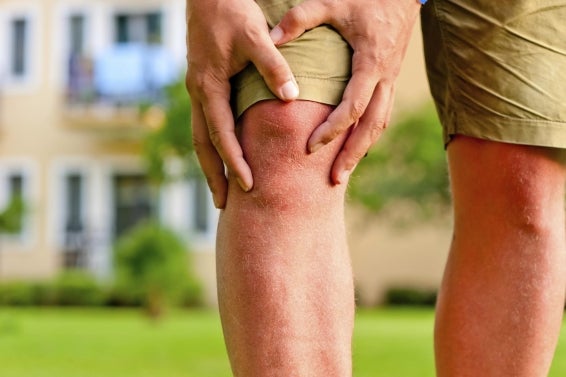View Providers
Getting the right treatment for hip pain starts with the
right diagnosis. Different causes of hip pain need different treatments.
For instance, hip pain might be the result of a broken bone
or dislocated hip. Then, you'll probably need surgery. Other times, you can get
the right relief from rest, lifestyle changes, physical therapy, and
medication. Sometimes it takes a combination of treatments to ease the pain. It
all depends on the exact cause of your hip pain.
Common treatment options include:
Medication
Medication helps manage many types of hip pain. Sometimes, medication
can provide the cure for the condition that's causing your hip pain. Options
include drugs that can relieve pain, reduce swelling, block inflammation, or
treat infection.
-
Over-the-counter
painkillers: Acetaminophen (Tylenol) may be the right medication for a hip
sprain or strain. If you have hip osteoarthritis, this medication may be a good
choice. -
Anti-inflammatory
medications: This is often the medication of choice if you have swelling as
well as pain in your hip. Your doctor may prescribe a nonsteroidal
anti-inflammatory drug (NSAID). Some are available over the counter, others
require a prescription. You may benefit from a steroid medication if you have
severe inflammation, such as hip bursitis. Steroids are sometimes injected into
your hip along with a pain reliever. -
DMARDs
and biologics: These medications fight the progression of diseases that
cause inflammation. They may be the right treatment if your pain is from
rheumatoid arthritis, for instance. -
Antibiotics:
You'll need an antibiotic drug if you have a bacterial infection that has
traveled to your hip joint.
Physical Therapy
Physical therapy includes exercises to improve hip movement
and strengthen hip muscles. A physical therapist can also show you things to do
at home to reduce pain and swelling. This approach can help with many types of
hip pain. Or, it may be part of your recovery plan after other forms of
treatment.
Common strategies include:
-
Rest and
ice. Resting your hip and using ice to reduce swelling may be the best
treatment for minor strains and sprains. These techniques may also help if you
have arthritis or hip bursitis. -
Movement
therapy. This may be for you if your pain stems from an injury or arthritis
or if you're recovering from surgery. A physical therapist will show you
exercises to help you heal and become more mobile. He or she might also use
treatments like massage and ultrasound to ease pain. The physical therapist can
prescribe assistive devices, like a cane or walker, to ease the strain on your
hip during recovery.
Lifestyle Change
Making some changes in your day-to-day habits may be part of
your treatment plan for hip pain. This is especially the case if your pain is
from arthritis.
Options include:
-
Losing weight if necessary and then maintaining
a healthy weight -
Avoiding activities that cause pain
-
Not smoking because smoking delays bone healing
Surgery
Hip surgery is usually the right treatment for broken bones
and dislocations. You may also need hip surgery for severe arthritis or for
osteonecrosis. Osteonecrosis is a disease that causes poor blood supply to your
hip joint.
Types of surgery include:
-
Closed
reduction. This procedure may help with a minor fracture or a dislocated
hip. The surgeon manipulates the bones back into place without making an
incision. -
Open
reduction. This is the type of surgery used for most hip fractures. Your
surgeon may use pins or screws to hold your bones in place. -
Hip
replacement surgery. Sometimes people need a new hip. This may be the case
if you have a very bad hip fracture or severe arthritis that causes pain and
limits your daily activities. -
Core
decompression. This procedure helps with osteonecrosis of the hip. Your
surgeon may drill holes in your hip bone to improve blood supply.
Whatever the cause of your hip pain and the treatment you
and your doctor decide on, realize that it can take time for the tissues to
heal and the pain to subside. Be patient, and keep communicating with your
doctor. Open communication will help you adjust the treatment plan if
necessary.





